|
Books Should Be Free Loyal Books Free Public Domain Audiobooks & eBook Downloads |
|
|
Books Should Be Free Loyal Books Free Public Domain Audiobooks & eBook Downloads |
|
Humorous Books |
|---|
|
Book type:
Sort by:
View by:
|
By: Eugene Field (1850-1895) | |
|---|---|
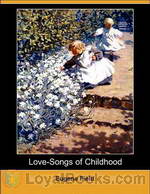 Love-Songs of Childhood
Love-Songs of Childhood
If you've heard and loved that delightful nursery rhyme/lullaby, Wynken Blynken and Nod you'd certainly enjoy browsing through its creator Eugene Field's Love Songs of Childhood. The volume contains some forty or more poems for children, which are ideal for read aloud sessions with young folks. Parents will certainly enjoy reading them too. Most of these poems have been set to music and are ideal for family sing-alongs too. Eugene Field was a gifted humorist as well as being a talented children's writer... | |
 The House An Episode in the Lives of Reuben Baker, Astronomer, and of His Wife, Alice
The House An Episode in the Lives of Reuben Baker, Astronomer, and of His Wife, Alice
| |
By: John Kendrick Bangs (1862-1922) | |
|---|---|
 Alice in Blunderland: an Iridescent Dream
Alice in Blunderland: an Iridescent Dream
John Kendrick Bangs (May 27, 1862 – January 21, 1922) was an American author and satirist, and the creator of modern Bangasian Fantasy, the school of fantasy writing that sets the plot wholly or partially in the afterlife. (Wikipedia)Plot summary: J K Bangs has taken Alice from Lewis Carroll’s “Alice in Wonderland” and lets her on a boring day travel with the Mad Hatter, the March Hare, the Cheshire Cat and the other of Carroll’s familiar characters to Blunderland. The story is a well written Satire, a witty, humorous tale of adventure and city politics, a tale of Alice in a land where nothing is as it should be. (Summary by Lars Rolander) | |
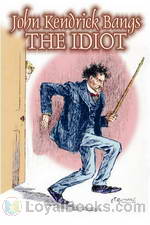 The Idiot
The Idiot
The Idiot is anything but, yet his fellow boarders at Mrs. Smithers-Pedagog’s home for single gentlemen see him as such. His brand of creative thought is dismissed as foolishness yet it continues to get under their skin, because when you’re beneath contempt you can say what you please. – This is the first of John Kendrick Bangs' “Idiot” books and was published by Harper and Brothers in 1895. | |
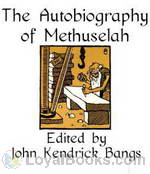 The Autobiography of Methuselah
The Autobiography of Methuselah
A satirical look at early biblical events from the point of view of someone who was there to witness most of them: the oldest man in recorded history. | |
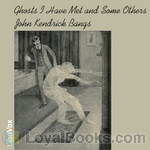 Ghosts I Have Met and Some Others
Ghosts I Have Met and Some Others
New York-born John Kendrick Bangs was associate editor and then editor of Life and Harper magazines, eventually finding his way into the Humour department. Here he began to write his own satire and humour. Ghosts I Have Met and Some Others is a delightfully humourous collection of short tales relating encounters with ghosts. | |
 Coffee and Repartee
Coffee and Repartee
First released in 1893, Coffee And Repartee is a collection of breakfast chats at a gentlemans boarding house run by a Mrs. Smithers. Here these fellows repeatedly face questions and proclamations by an inhabitant they call The Idiot. The discussions sound friendly under pretense, but are really sly battles of ribald wit and cunning charm, as well as rather offensive remarks during a time period considered by many to favour a height of refined etiquette. The Idiot spars well, but will the other residents get the better of him? | |
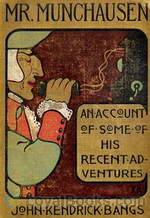 Mr Munchausen
Mr Munchausen
The author has discovered for us in this volume the present stopping place of that famous raconteur of dear comic memory, the late Hieronymous Carl Friederich, sometime Baron Munchausen, and he transmits to us some further adventures of this traveler and veracious relator of merry tales. There are about a dozen of these tales, and, judging by Mr. Bangs' recital of them, the Baron's adventures on this mundane sphere were no more exciting than those he has encountered since taking the ferry across the Styx... | |
 Over The Plum Pudding
Over The Plum Pudding
Great Caesar’s ghost and shades of A Christmas Carol! Stories – some ghostly, some Christmas, some humorous, some all three -- twelve of them by a master story teller and humorist of the late nineteenth and early twentieth centuries. | |
 Enchanted Typewriter
Enchanted Typewriter
The Enchanted Typewriter is a collection of short stories by the American author John Kendrick Bangs, written in 1899 in the style that has become known as Bangsian fantasy. Bangs attributes many of the stories to the late (and invisible) James Boswell, who has become an editor for a newspaper in Hades, and who communicates with the author by means of an old typewriter. The fantasy stories in this book are part of the author's Hades series, named for the stories' setting. | |
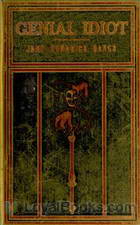 Genial Idiot
Genial Idiot
John Kendrick Bangs once again takes us on a journey with the loveable, but somewhat self-opinionated and irritating Mr Idiot. | |
 Jack and the Check Book
Jack and the Check Book
Bangs is in top form in his version of this small collection of timeless fairy tales. If you don't immediately recognize Jack and the Check Book, Puss, the Promoter, and the Golden Fleece, don't worry, you soon will. | |
 Toppleton's Client
Toppleton's Client
A pre-eminent legal firm gets far more than it bargained for when it hires the son of its late senior partner, Hopkins Toppleton, Sr., simply to retain the illustrious family name on the company masthead. Knowing Jr. is a loose cannon, their strategy is to pack him off to the UK to head up a European branch of the firm - a branch they have no intention of sending work. The unwitting Hopkins Toppleton, Jr. is, however, determined to make his mark. | |
By: Edward Lear (1812-1888) | |
|---|---|
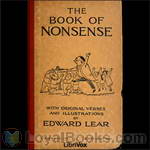 A Book of Nonsense
A Book of Nonsense
In 1846 Lear published A Book of Nonsense, a volume of limericks that went through three editions and helped popularize the form. This book contains 112 of these funny, imaginative verses that have been well loved by many generations of children (and adults). ( | |
 Nonsense Songs, Stories, Botany and Alphabets
Nonsense Songs, Stories, Botany and Alphabets
A selection of nonsense poems, songs (not sung!), stories, and miscellaneous strangeness. The work includes the "Owl and the Pussycat" and a recipe for Amblongus Pie, which begins "Take 4 pounds (say 4½ pounds) of fresh ablongusses and put them in a small pipkin."Edward Lear was an English writer, poet, cat-lover, and illustrator (his watercolours are beautiful). This recording celebrates the 200th anniversary of Lear's birth. | |
 Nonsense Drolleries The Owl & The Pussy-Cat—The Duck & The Kangaroo.
Nonsense Drolleries The Owl & The Pussy-Cat—The Duck & The Kangaroo.
| |
 More Nonsense
More Nonsense
| |
By: George Barr McCutcheon (1866-1928) | |
|---|---|
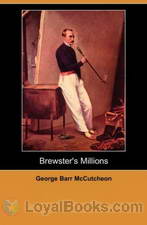 Brewster's Millions
Brewster's Millions
He hosts an all expenses paid luxury cruise to Europe for fifty guests and showers them with expensive gifts. When he's mugged in a dark alley, he insists that the thugs also take the $300 stashed away in his back pocket. He flies into a rage whenever one of his employees suggests cutting costs. Every time he places a bet, he wins, causing him even more despair! In Brewster's Millions by George Barr McCutcheon, a classic riches-to-rags tale, Montgomery Brewster is bound by the terms of an eccentric uncle's will to spend one million dollars completely within a year so that he can lay claim to an even bigger fortune... | |
 Yollop
Yollop
Mr. Crittenden Yollop makes friends with the man who came to burglarize his home and sets out to help him return to where he really wants to be...prison. This humorous satire takes a somewhat different look at prisons, criminals, the law and reformers. | |
By: Israel Zangwill (1864-1926) | |
|---|---|
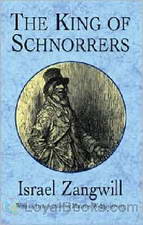 The King of Schnorrers
The King of Schnorrers
Manasseh da Costa is a schnorrer (beggar) who lives on the charitable contributions of the Jews of late 18th-century London. But Manasseh is far from being a humble panhandler for, as every schnorrer knows, supporting the poor is a commandment from God (a mitzvah) not just a favour. And as the descendant of Portuguese Jews who had lived in England for many generations, Manasseh is the social superior of those newly arrived from Eastern Europe (called ‘Tedesco’), even his wealthy patron Joseph Grobstock... | |
By: Henrik Ibsen (1828-1906) | |
|---|---|
 Hedda Gabler
Hedda Gabler
Hedda Gabler is a play first published in 1890 by Norwegian playwright Henrik Ibsen. In it, Hedda Gabler, daughter of an aristocratic General, has just returned from her honeymoon with George Tesman, an aspiring young academic, reliable but not brilliant, who has combined research with their honeymoon. The reappearance of Tesman’s academic rival, Eilert Lovborg, throws their lives into disarray. | |
By: Aldous Huxley (1894-1963) | |
|---|---|
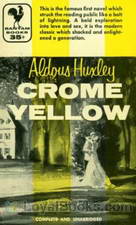 Crome Yellow
Crome Yellow
A shy, introverted young poet. A weekend in a magnificent English country house. A beautiful young lady whom the poet is secretly in love with. An assorted group of guests with varied interests, motives, ambitions and aspirations, and the complex web of history and events that connect all of them. Crome Yellow by Aldous Huxley was his first book, published in 1921, when he was just 27 years old. It is typical of many books written during this period by writers like Thomas Love Peacock and Somerset Maugham, centered round a country mansion and the quaint, British tradition of being invited to spend a weekend with a group of people whom one may or may not know... | |
By: Robert Benchley (1889-1945) | |
|---|---|
 Love Conquers All
Love Conquers All
Sixty-three essays on a variety of topics as wide apart as Family Life in America, Opera Synopses, Bigamy, International Finance and many more, Love Conquers All by Robert Benchley strangely enough does not touch upon romance at all! However, these delightful notes provide hours of browsing pleasure for young and old readers alike. Robert Benchley was a well-known humorist and newspaper columnist, radio and television presenter, actor, scriptwriter and broadcaster. He is also credited with creating the first ever television entertainment show and one of his iconic short films, How to Sleep won an Academy Award in 1936... | |
By: John Habberton | |
|---|---|
 Helen's Babies
Helen's Babies
Harry Burton, salesman of white-goods, bachelor of twenty-eight leads a charmed existence. A letter from his sister, Helen changes his life forever. She and her husband have been invited for a holiday but they can't find anyone to baby-sit their two toddlers, five-year-old Budge and three-year-old Toddie. Ever the gallant helpful, Harry steps in, foreseeing nothing but a relaxed vacation with lots of books to read and thinks baby-sitting's a breeze. But destiny has other plans. Harry has long adored a lovely lady from afar and hopes to convince her that he is marriage material by displaying his nurturing side... | |
By: Oliver Goldsmith (1730-1774) | |
|---|---|
 An Elegy on the Death of a Mad Dog
An Elegy on the Death of a Mad Dog
| |
 An Elegy on the Glory of Her Sex, Mrs. Mary Blaize
An Elegy on the Glory of Her Sex, Mrs. Mary Blaize
| |
By: L. A. Abbott (1813-??) | |
|---|---|
 Seven Wives and Seven Prisons
Seven Wives and Seven Prisons
This work the author claims is indeed a true story of how he happened to be married seven times to seven different women and the rollicking, hilarious events that led (or stumbled) to the marriages and the ah–disassembling/failing/failures of each said marriage which happened oftentimes to land him in prison. The summarist finds the work a very tongue-in-cheek diatribe/lament/account of his obsessive zeal in ‘marrying the right one’, but is also the mirthful chronicle of said author’s very unconventional adventures. | |
By: H. G. Wells (1866-1946) | |
|---|---|
 Love and Mr Lewisham
Love and Mr Lewisham
The teaching profession, science and politics in late 19th century England. H.G.Wells’ humorous early novel, drawing on his own life, shows how these – as well as involvement in spiritualism – have to compete with love. | |
 Sea Lady
Sea Lady
| |
By: Booth Tarkington | |
|---|---|
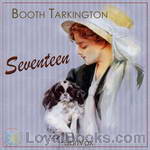 Seventeen
Seventeen
A Tale of Youth and Summer Time and the Baxter Family Especially William | |
 Gentle Julia
Gentle Julia
Penrod for girls in the form of Florence, the bratty younger cousin of luminous Julia Atwater, enlivens this romantic comedy set in Tarkington's Indiana of the early 20th Century. | |
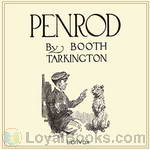 Penrod
Penrod
Join Penrod Schofield and his wistful dog Duke, in a hilarious romp through turn of the century Indianapolis, chronicling his life, loves, and mostly the trouble he gets into. | |
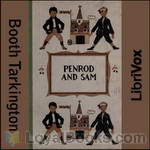 Penrod and Sam
Penrod and Sam
Follow more of the hilarious life of the boy Penrod Schofield, his friends Sam Williams, Herman, Verman, Georgie, Maurice, and the love of his life, Marjorie Jones. | |
By: Gideon Wurdz (b. 1875) | |
|---|---|
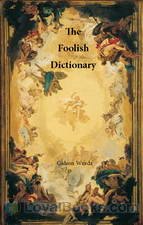 The Foolish Dictionary
The Foolish Dictionary
“The Foolish Dictionary” was written by “Gideon Wurdz” and was published in 1904. According to the beginning of the book, it is “An exhausting work of reference to un-certain English words, their origin, meaning, legitimate and illegitimate use…” This a a short but amusing dictionary which “redefines” words in some interesting ways. Funny and sometimes bizarre observations are sprinkled throughout. In keeping with the policy to read, rather than attempt to rewrite, books – even those with offensive content – nothing has been omitted... | |
By: Alphonse Daudet (1840-1897) | |
|---|---|
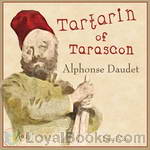 Tartarin of Tarascon
Tartarin of Tarascon
It tells the burlesque adventures of Tartarin, a local hero of Tarascon, a small town in southern France, whose invented adventures and reputation as a swashbuckler finally force him to travel to a very prosaic Algiers in search of lions. Instead of finding a romantic, mysterious Oriental fantasy land, he finds a sordid world suspended between Europe and the Middle East. And worst of all, there are no lions left. | |
By: Irwin S. Cobb (1876-1944) | |
|---|---|
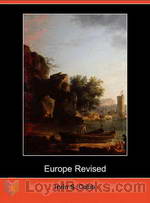 Europe Revised
Europe Revised
Irwin Cobb’s humorous Europe Revised is a travelogue and comedy almost in the style of Mark Twain. The dedication says it best, “To My Small DaughterWho bade me shed a tear at the tomb of Napoleon, which I was very glad to do, because when I got there my feet certainly were hurting me.” | |
By: W. S. Gilbert (1836-1911) | |
|---|---|
 The Bab Ballads
The Bab Ballads
The Bab Ballads are a collection of light verse by W. S. Gilbert, illustrated with his own comic drawings. Gilbert wrote the Ballads before he became famous for his comic opera librettos with Arthur Sullivan. In writing the Bab Ballads, Gilbert developed his unique “topsy-turvy” style, where the humour was derived by setting up a ridiculous premise and working out its logical consequences, however absurd. The Ballads also reveal Gilbert’s cynical and satirical approach to humour. They became famous on their own, as well as being a source for plot elements, characters and songs that Gilbert would recycle in the Gilbert and Sullivan operas... | |
By: P. G. Wodehouse (1881-1975) | |
|---|---|
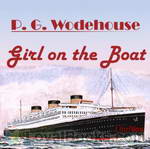 The Girl on the Boat
The Girl on the Boat
Also published as "Three Men and a Maid". The maid of the title is red-haired, dog-loving Wilhelmina "Billie" Bennet, and the three men are Bream Mortimer, a long-time friend and admirer of Billie, Eustace Hignett, a lily-livered poet who is engaged to Billie at the opening of the tale, and Sam Marlowe, Eustace's dashing cousin, who falls for Billie at first sight. All four find themselves on an ocean liner headed for England together, along with a capable young woman called Jane Hubbard who is smitten with Eustace, and typically Wodehousian romantic shenanigans ensue. (Introduction by wikipedia) | |
 Mike and Psmith
Mike and Psmith
| |
 Death at the Excelsior And Other Stories
Death at the Excelsior And Other Stories
| |
 The Gold Bat
The Gold Bat
| |
 The Gem Collector
The Gem Collector
| |
 The Little Warrior
The Little Warrior
| |
 Love Among the Chickens A Story of the Haps and Mishaps on an English Chicken Farm
Love Among the Chickens A Story of the Haps and Mishaps on an English Chicken Farm
| |
 Little Nugget
Little Nugget
Mrs Nesta Ford, in her London hotel room, reveals to her new friend Lord Mountry that she hopes to take her son Ogden on a yachting trip proposed by Mountry, despite her ex-husband having won custody of the boy. As Mountry leaves, Cynthia Drassilis arrives with Ogden, whom she has led away from his father's country house. Mrs Ford rewards Cynthia, but soon Mr Ford's secretary, a Mr Minnick, arrives to recover the stolen child. Cynthia tries to bribe his colleague, Mrs Sheridan, but to no avail, as she believes Nesta's influence has spoiled the boy... | |
By: Joseph Jacobs (1854-1916) | |
|---|---|
 Indian Fairy Tales
Indian Fairy Tales
This book is a fine collection of Indian fairy tales, some are folklore, some are from the Jataka tales, and some from panchatantra. | |
By: Frederick Marryat (1792-1848) | |
|---|---|
 Snarleyyow
Snarleyyow
This is a quite amusing nautical tale of the British Navy of the around the year 1700. While, as with much early 'humor', it is somewhat heavy-handed, the sympathies of the author are clear and good, and cruelty is often averted by good fortune or background characters. First published under the title 'The Dog Fiend', the primary characters are an evil captain of a cutter and his dog. The dog seems indestructible, as is the poor cabin boy who is the butt of the captain's ill humor, and who often is chewed on by the dog... | |
By: Edna Ferber (1885-1968) | |
|---|---|
 Dawn O'Hara, The Girl Who Laughed
Dawn O'Hara, The Girl Who Laughed
Dawn O’Hara, the Girl Who Laughed was Edna Ferber’s first novel. Dawn, a newspaperwoman working in New York, finds herself back home in Michigan on doctor’s orders. Years of living in boarding-houses and working to pay for the care of her brilliant but mentally ill husband, Peter Orme, have taken their toll. At twenty-eight, Dawn feels like an old woman with no future. But, the loving care of her sister Norah and her family along with the attentions of the handsome German doctor, Ernst Von Gerhard, slowly bring Dawn back to life... | |
 Buttered Side Down
Buttered Side Down
"And so," the story writers used to say, "they lived happily ever after." Um-m-m—maybe. After the glamour had worn off, and the glass slippers were worn out, did the Prince never find Cinderella's manner redolent of the kitchen hearth; and was it never necessary that he remind her to be more careful of her finger-nails and grammar? After Puss in Boots had won wealth and a wife for his young master did not that gentleman often fume with chagrin because the neighbors, perhaps, refused to call on the lady of the former poor miller's son? It is a great risk to take with one's book-children... | |
By: Edwin F. Benson (1867-1940) | |
|---|---|
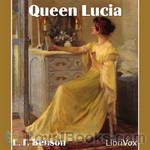 Queen Lucia
Queen Lucia
E. F. Benson (1867-1940) was born at Wellington College in Berkshire, where his father, who later went on to become the Archbishop of Canterbury, was the first Headmaster. He wrote 105 books in all. Queen Lucia (first published in 1920) was the first of Benson’s ‘Mapp and Lucia’ novels of which there were six. This first book is a comedy of manners based in the provincial village of Riseholme, where Emmeline Lucas (the Queen Lucia of the title) presides over the social and artistic universe of the gullible residents... | |
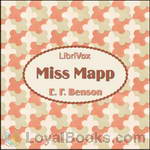 Miss Mapp
Miss Mapp
E. F. Benson’s Mapp and Lucia series, consists of six novels and three short stories. The novels are: Queen Lucia, Lucia in London, Miss Mapp (including the short story The Male Impersonator), Mapp and Lucia, Lucia’s Progress (published as The Worshipful Lucia in the U.S.) and Trouble for Lucia. Most of these works are set in the fictional village of “Tilling”, which is based on the village of Rye, Sussex, England. “Mallards”, the house with the garden room inhabited by Miss Mapp, and later by Lucia, is based on Lamb House, Benson’s own home in Rye. Earlier, the house was the Sussex home of writer Henry James. | |
By: Henry Fielding (1707-1754) | |
|---|---|
 The History of Tom Jones, A Foundling
The History of Tom Jones, A Foundling
Tom Jones is considered one of the first prose works describable as a novel. The novel is divided into 18 smaller books. Tom Jones is a foundling discovered on the property of a very kind, wealthy landowner, Squire Allworthy. Tom grows into a vigorous and lusty, yet honest and kind-hearted, youth. He develops affection for his neighbor’s daughter, Sophia Western. On one hand, their love reflects the romantic comedy genre popular in 18th-century Britain. However, Tom’s status as a bastard causes Sophia’s father and Allworthy to oppose their love; this criticism of class friction in society acted as a biting social commentary... | |
 An Apology for the Life of Mrs. Shamela Andrews
An Apology for the Life of Mrs. Shamela Andrews
An Apology for the Life of Mrs. Shamela Andrews, or simply Shamela, as it is more commonly known, is a satirical novel written by Henry Fielding and first published in April 1741 under the name of Mr. Conny Keyber. Fielding never owned to writing the work, but it is widely considered to be his. It is a direct attack on the then-popular novel Pamela (November 1740) by Fielding's contemporary and rival Samuel Richardson and is composed, like Pamela, in epistolary form. Shamela is written as a shocking revelation of the true events which took place in the life of Pamela Andrews, the main heroine of Pamela... | |
By: Irvin S. Cobb (1876-1944) | |
|---|---|
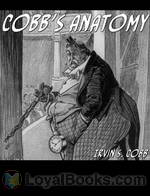 Cobb's Anatomy
Cobb's Anatomy
Irvin Shrewsbury Cobb was born on June 23, 1876. At seventeen years of age, he began writing for the Paducah Daily News, his hometown paper. At nineteen he became the managing editor; up to that point, our nation’s youngest. He worked as a columnist, a humorist and an author. But ‘horror,’ and ’short stories,’ are not why he is remembered. He is remembered because he was, and still is, funny. And although he is now dead–he died March 11, 1944–this work “Cobb’s Anatomy,” among others, has left an indelible mark upon mankind: a smile. | |
 One Third Off
One Third Off
Irvin Shrewsbury Cobb (June 23, 1876–March 11, 1944) was an American author, humorist, and columnist who lived in New York and wrote over 60 books and 300 short stories. Cobb has been described as “having a round shape, bushy eyebrows, full lips, and a triple chin. He always had a cigar in his mouth.” This book is a hilarious account of Cobb’s attempts at weight-loss. | |
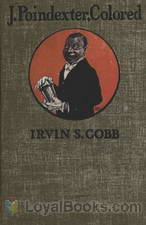 J. Poindexter, Colored
J. Poindexter, Colored
This comic novel relates the first-person adventures in New York City of Jefferson Poindexter, personal assistant to Cobb's famous Judge Priest, while the judge is vacationing abroad. (Introduction by Grant Hurlock) | |
By: William Dean Howells (1837-1920) | |
|---|---|
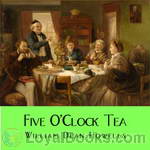 Five O'Clock Tea
Five O'Clock Tea
A light-hearted romantic comedy in twelve short scenes, set during a tea party in the home of Mrs. Amy Somers, a widow who is courted by the ingenuous and delightful Mr. Willis Campbell. | |
By: Carl Sandburg (1878-1967) | |
|---|---|
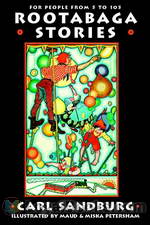 Rootabaga Stories
Rootabaga Stories
Carl Sandburg is beloved by generations of children for his Rootabaga Stories and Rootabaga Pigeons (which is not in the public domain), a series of whimsical, sometimes melancholy stories he originally created for his own daughters. The Rootabaga Stories were born of Sandburg’s desire for “American fairy tales” to match American childhood. He felt that the European stories involving royalty and knights were inappropriate, and so populated his stories with animals, skyscrapers, trains, corn fairies, and other colorful characters. | |